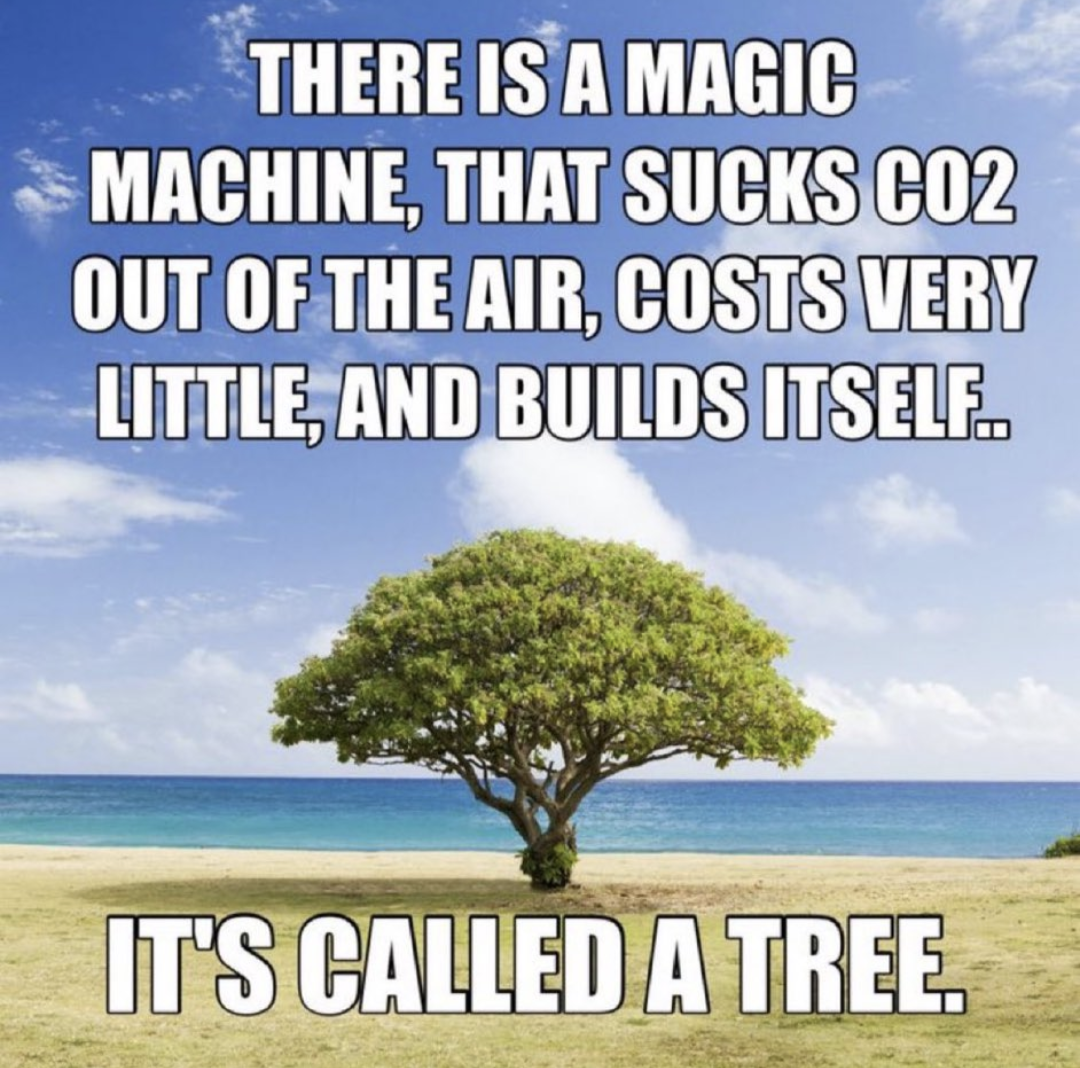this post was submitted on 30 Jul 2024
614 points (93.4% liked)
Nature Enthusiasts
803 readers
1 users here now
For all media, news and discussion focusing on nature!
The rules for posting and commenting, besides the rules defined here for lemmy.world, are as follows:
1-No advertising or spam.
2-No harrassment of any kind.
3-No illegal or NSFW or gore content.
founded 1 year ago
you are viewing a single comment's thread
view the rest of the comments
view the rest of the comments

Trees only store CO² for a limited time. Then you need to somehow store it in the holes we got the oil out from. I prefer algae.
Algae or hemp. Hemp stores 85% of the carbon in its roots, so you can use the rest of the plant. Just collect the roots and compress them to a density that will NOT float and dump the root cubes into the Mariana Trench. That carbon will be trapped for a few tens to hundreds of millions of years. Also one acre of hemp pulls 10 times more carbon out of the air that one acre of trees does per harvest, and you can harvest the hemp 4 times a year as opposed to once every 60 years.
Or throw them into a strip mine or oil well seal it up. Not like we don't have a ton of giant holes in our ground after a century of fossil fuel extraction.
I would be worried about seepage into and out of those holes, but I suppose it is unlikely to turn into something toxic...
Yeah, algae has problems with sensibility to temp and bacteria and so on. And my duvet cover out of hemp thermo-regulates itself, no sweat.
This. Also, they're kinda slow. Unfortunately, we're in need of solutions that (in addition to using plants) work much, much faster.
You don't have to go THAT far, you can bury it over time through regenerative agriculture. Also, crazy I know, you can build durable structures with them. That said, the substantial majority of carbon sequestered by forests is in the soil as part of the lifecycle of the forest, therefore preserving trees, especially forests is extremely vital much more so than planting new trees. Restoring forests and wetlands is also vital but It takes a long time for a forest ecosystem to develop, and if you're trying to just convert land to rapidly sequester CO2, bamboo plantations and algae farms are faster.
Nah, buildings and hummus are only just a bit longer term than trees. Still short term in the long run tho.
Hummus is never long term the way I eat it
Why did they have to name it the same like we do dirt.
Actually, they're starting to do just that. It's called wood vaulting. Can't tell if the lack of decomposition is a pro or a con, though.
Wetlands wetlands wetlands wetlands wetlands!